We all know that drinking too much alcohol is bad, but it also affects the brain
The research paper アルコール症の徐波睡眠障害とCT-Scan is cited and referred to in this report.
If you continue to drink too much alcohol, you will become an alcoholic. Alcohol not only tastes good, but it also has a relaxing effect. After a hard day’s work, drinking alcohol can be liberating. However, the more you drink, the more you develop a tolerance to alcohol. This means that the relaxing effect will not be enough unless you increase the amount of alcohol you drink. In this way, drinkers who continue to increase the amount of alcohol they drink become alcoholics. Alcoholics not only have trouble getting deep sleep, but their brains, especially the cerebrum, may be atrophied.
Ethanol, the alcohol found in alcoholic beverages, can make you feel drowsy. This is because it has a depressant effect on the central nervous system. However, have you ever experienced shallow sleep after drinking a large amount of alcohol? This is because alcohol causes REM sleep, which is shallow sleep, to appear more often in the latter half of sleep. The cerebral cortex is thought to play an important role in the development of slow wave sleep, which is deep sleep, and alcoholics show cerebral atrophy.
Investigation of the relationship between alcohol, sleep and the brain
The study was to look at polygraphic all-night sleep records of men hospitalized for alcohol dependence with a drinking history of 10 years or more, and to analyze data from four periods: the second week, first month, second month, and third month after sobriety.
As a result, from the third month of sobriety, slow wave sleep, which is deep sleep, began to appear clearly; by the second month, slow wave sleep was almost absent. This means that for two months they did not sleep deeply. Three months after sobriety, the percentage of slow wave sleep was 5.09% of total sleep time. In normal human sleep, slow wave sleep is around 15% of total sleep.
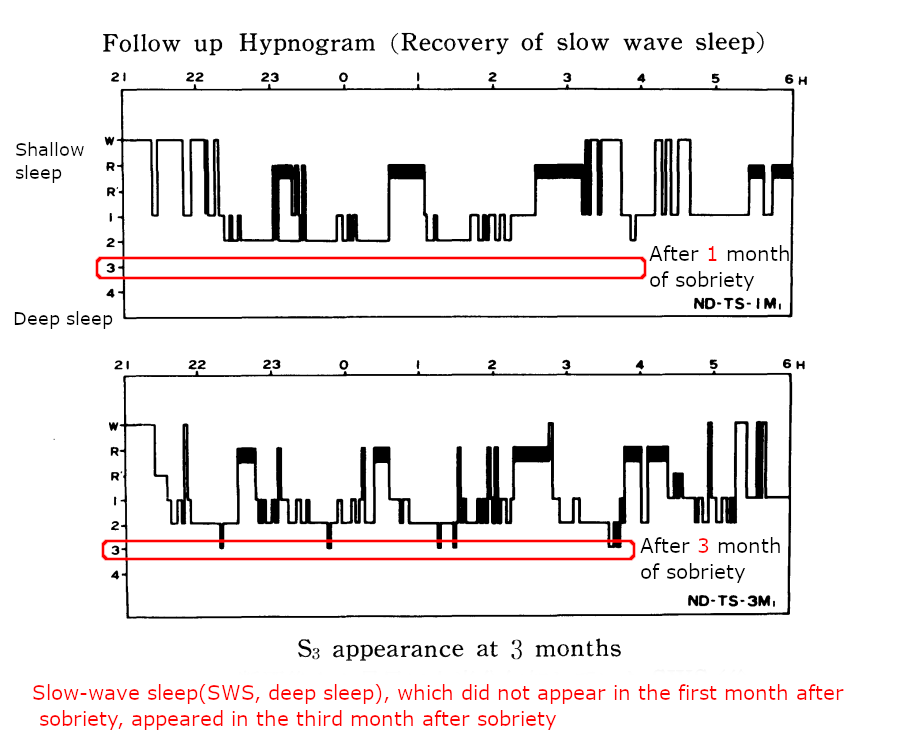
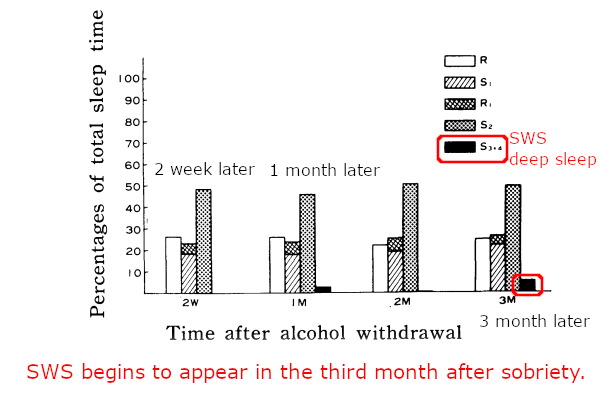
However, there was variation from person to person, with 9 out of 20 people having a complete lack of slow-wave sleep, while others had a slow-wave sleep percentage of 12.59%, which is close to normal.
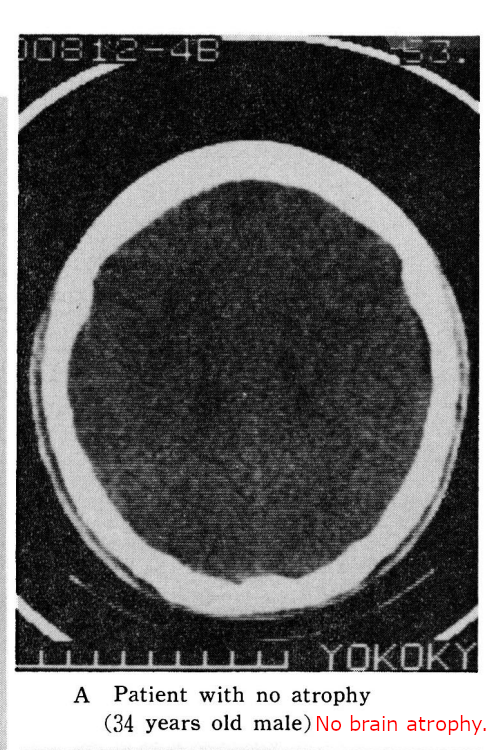
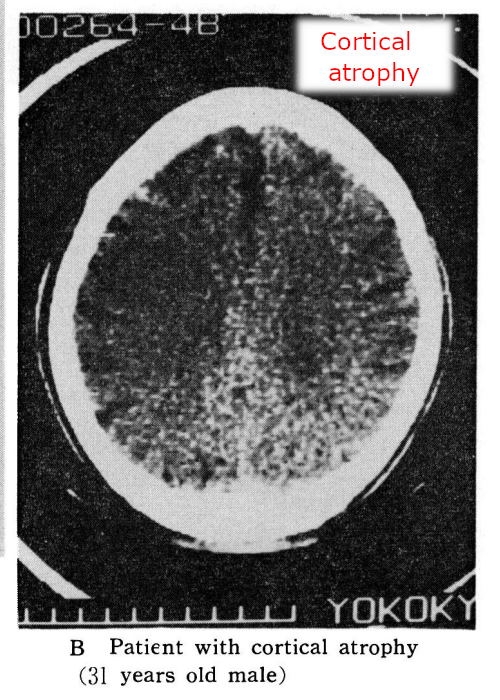
Then, when the atrophy was ordered from mildest to most severe, the slow wave sleep rate was ordered from highest to lowest. In other words, if the brain atrophy is severe, the patient is not getting slow wave sleep (not sleeping deeply). Recovery after sobriety is poor. Incidentally, there was no relationship between age and slow-wave sleep, but older people tended to have poorer recovery from slow-wave sleep. In addition, the degree of cortical atrophy seemed to be higher in those who had a longer history of alcohol consumption.
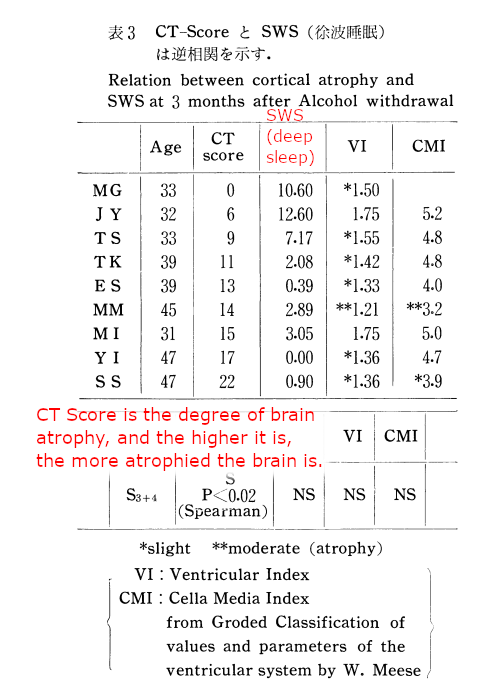
Alcohol contributes to atrophy of the cerebral cortex and is thought to interfere with deep sleep. Avoid heavy drinking and take a day off from drinking.
There is also the method of reducing alcohol consumption
The best way is abstinence from alcohol. This means not drinking alcohol. But it is difficult. If you drink every day and it has become routine, you cannot sleep without drinking. So how about reducing the amount of alcohol you drink, or reducing the alcohol content? A Japanese beer company has released a delicious low-alcohol beer. It is Asahi Beer’s Beery. It has an alcohol content of 0.5%, so it contains only one-tenth the alcohol of regular beer. The alcohol is removed after the beer is made, so it is the flavor of the beer itself. There is a black package and a white package, but I recommend the white beery, which has a very strong fruit-like aroma. When I bought it for my wife, who rarely drinks and hates drinking, she said, “If there is a beery at a pub, I’ll definitely order this one. I might order it all the time. Please give it a try. I highly recommend it.


コメント